
My name is Rocío.
My grandparents
owere Spaniards.
I live in Boston.
I am Latina.
[/wc_column][wc_column size=”one-half” position=”last”]Click to see:
> Questions to initiate and guide the Creative Reading Dialogue
> Activities students can do individually or in groups
[/wc_column][/wc_row]Questions to Initiate and Guide the Creative Reading Dialogue
Descriptive Phase
[wc_fa icon=”arrow-right” margin_left=”” margin_right=””][/wc_fa] Where were Rocío’s grandparents from? Why were they forced to leave their country?
Personal Interpretive Phase
[wc_fa icon=”arrow-right” margin_left=”” margin_right=””][/wc_fa] Many people have come to the United States fleeing from political oppression in their homeland. Other come in search of better opportunities. Do you know anyone who has come to the United States as political refugee?
[wc_fa icon=”arrow-right” margin_left=”” margin_right=””][/wc_fa] Have your family moved to the United States from any other country? Do you know the reasons that led them to move?
[wc_fa icon=”arrow-right” margin_left=”” margin_right=””][/wc_fa] Do you know anyone whose family is from Spain?
[wc_fa icon=”arrow-right” margin_left=”” margin_right=””][/wc_fa] Do you know the story of your grandparents? Is there anyone who could tell you about it?
[wc_fa icon=”arrow-right” margin_left=”” margin_right=””][/wc_fa] Knowing the story of our ancestors can be very enriching. We can be inspired by good examples and learn how to avoid mistakes. What would you like to know about your own family history?
Critical/Multicultural/Anti-Bias Phase
[wc_fa icon=”arrow-right” margin_left=”” margin_right=””][/wc_fa] Freedom is a value treasured by many. But it is not always easy to achieve. Many times we believe we are free, but in reality, we are not acting freely. To act freely requires reflection. Imitating others, doing what everyone does, doing things without thinking much about the consequences is not to act in freedom.
How can you know that you are really being free?
Creative/ Transformative Phase
[wc_fa icon=”arrow-right” margin_left=”” margin_right=””][/wc_fa] What will you do to be truly free, to ascertain that you are not acting out of habit (doing things the way you have always done it), imitation, conformity (doing what you believe others expect of you, without truly reflecting upon it)?
[wc_fa icon=”arrow-right” margin_left=”” margin_right=””][/wc_fa] How will you make sure the consequences of your actions are the ones you would like to see?
Activities Students Can Go Individually or in Groups
[wc_fa icon=”arrow-right” margin_left=”” margin_right=””][/wc_fa] Invite students to learn about Spain. Have them draw a large map of Spain that can be placed on a wall. Have they mark the major cities and the regions where four different languages [euskera, the Basque language; gallego, the language of the Northwestern Celtic region; catalán, the language of the Catalonian area; and castellano, Castilian, the language of central Spain are spoken].
[wc_fa icon=”arrow-right” margin_left=”” margin_right=””][/wc_fa] Encourage students to make an ABC book about Spain. You can see examples of ABC books done by teachers and students in: www.authorsintheclassroom.com
Specifically at: http://authorsintheclassroom.com/4-building-communities-alphabet-books/
[wc_fa icon=”arrow-right” margin_left=”” margin_right=””][/wc_fa] Encourage students to explore important figures Spanish figures from Spain, who have contributed significantly to the culture of all Spanish-speakers and their descendants. For example:
[wc_fa icon=”caret-right” margin_left=”30px” margin_right=””][/wc_fa] Literature: Miguel de Cervantes, Teresa de Ávila, Calderón de la Barca, Lope de Vega, Espronceda, Bécquer, Rosalía de Castro, Emilia Pardo Bazán,
[wc_fa icon=”caret-right” margin_left=”30px” margin_right=””][/wc_fa] Miguel de Unamuno, Federico García-Lorca, Pedro Salinas, Almudena Grandes, etc.
[wc_fa icon=”caret-right” margin_left=”30px” margin_right=””][/wc_fa] Painting: Diego Velázquez, el Greco, Goya, Joaquín Sorolla, Pablo Picasso, Joan Miró, Salvador Dalí
[wc_fa icon=”caret-right” margin_left=”30px” margin_right=””][/wc_fa] Architecture: Antonio Gaudí, Santiago Calatrava
[wc_fa icon=”caret-right” margin_left=”30px” margin_right=””][/wc_fa] Music:
[wc_fa icon=”caret-right” margin_left=”60px” margin_right=””][/wc_fa] Composers: Manuel de Falla, Joaquín Rodrigo
[wc_fa icon=”caret-right” margin_left=”60px” margin_right=””][/wc_fa] Musicians: Pablo Casals, Andrés Segovia, Alicia de Larrocha
[wc_fa icon=”caret-right” margin_left=”60px” margin_right=””][/wc_fa] Singers: Montserrat Caballé, Joan Manuel Serrat
[wc_fa icon=”caret-right” margin_left=”30px” margin_right=””][/wc_fa] Science: Isaac Peral, Juan de la Cierva, Santiago Ramón y Cajal, Severo Ochoa, Gregorio Marañón, Christina Ochoa
They could write the biography of an individual or create an ABC book of them.
Related Books Grades 2-4
[wc_row][wc_column size=”one-fourth” position=”first”]
 Smiles (Biographies of the Spaniard Pablo Picasso, along with the Chilean Gabriela Mistral and the Mexican Benito Juárez) by Alma Flor Ada & F. Isabel Campoy
Smiles (Biographies of the Spaniard Pablo Picasso, along with the Chilean Gabriela Mistral and the Mexican Benito Juárez) by Alma Flor Ada & F. Isabel Campoy
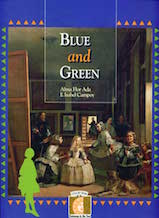 Blue and Green (Includes art by Velázquez= by Alma Flor Ada & F. Isabel Campoy
Blue and Green (Includes art by Velázquez= by Alma Flor Ada & F. Isabel Campoy
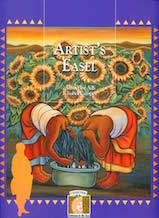 Artist’s Easel (Includes art by Joan Miró and Goya) by Alma Flor Ada & F. Isabel Campoy
Artist’s Easel (Includes art by Joan Miró and Goya) by Alma Flor Ada & F. Isabel Campoy
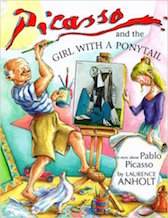 Picasso and the Girl with a Ponytail by Laurence Anholt
Picasso and the Girl with a Ponytail by Laurence Anholt
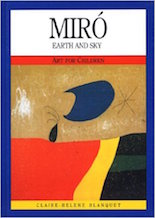 Miró by Claire-Helene Blanquet
Miró by Claire-Helene Blanquet
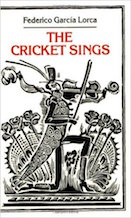 The Cricket Sings by Federico García Lorca. Maria Howarth Illustrator, Will Kirkland, Translator.
The Cricket Sings by Federico García Lorca. Maria Howarth Illustrator, Will Kirkland, Translator.
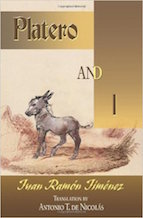 Platero and I by Juan Ramón Jiménez
Platero and I by Juan Ramón Jiménez
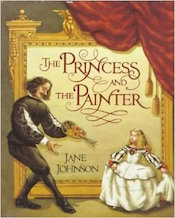 The Princess and the Painter (about Diego Velázquez) by Jane Johnson
The Princess and the Painter (about Diego Velázquez) by Jane Johnson
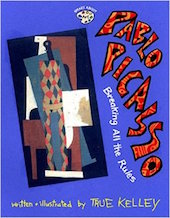 Pablo Picasso: Breaking All the Rules by True Kelley
Pablo Picasso: Breaking All the Rules by True Kelley
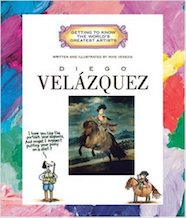 Diego Velázquez by Mike Venezia
Diego Velázquez by Mike Venezia
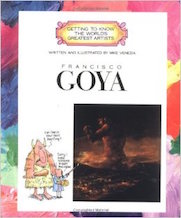 Francisco Goya by Mike Venezia
Francisco Goya by Mike Venezia
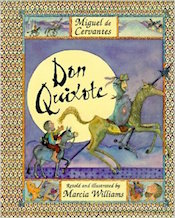 Miguel de Cervantes’s Don Quixote by Marcia Williams
Miguel de Cervantes’s Don Quixote by Marcia Williams
Related Books Grades 4-8
[wc_row][wc_column size=”one-half” position=”first”]
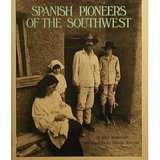 Spanish Pioneers of the Southwest by Joan Anderson
Spanish Pioneers of the Southwest by Joan Anderson
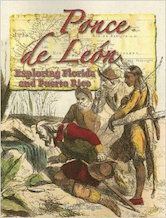 Ponce De León: Exploring Florida and Puerto Rico (In the Footsteps of Explorers) by Rachel Eagen
Ponce De León: Exploring Florida and Puerto Rico (In the Footsteps of Explorers) by Rachel Eagen
